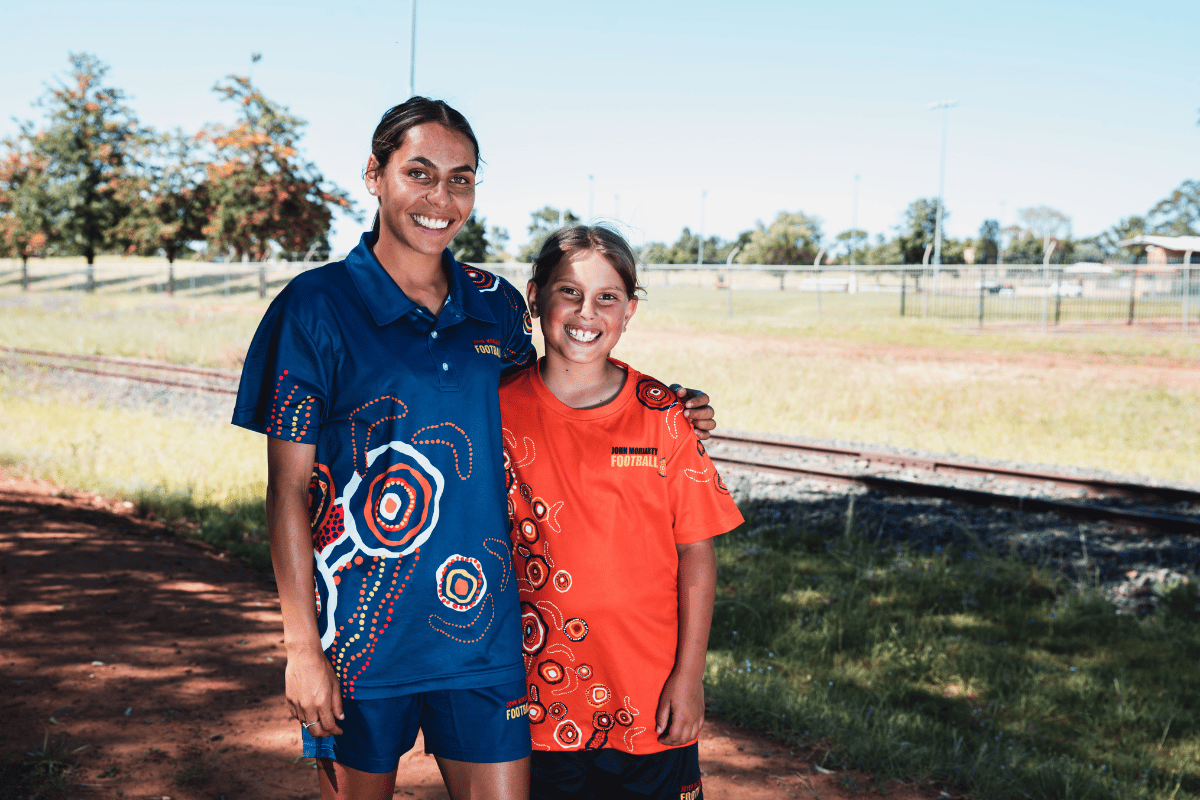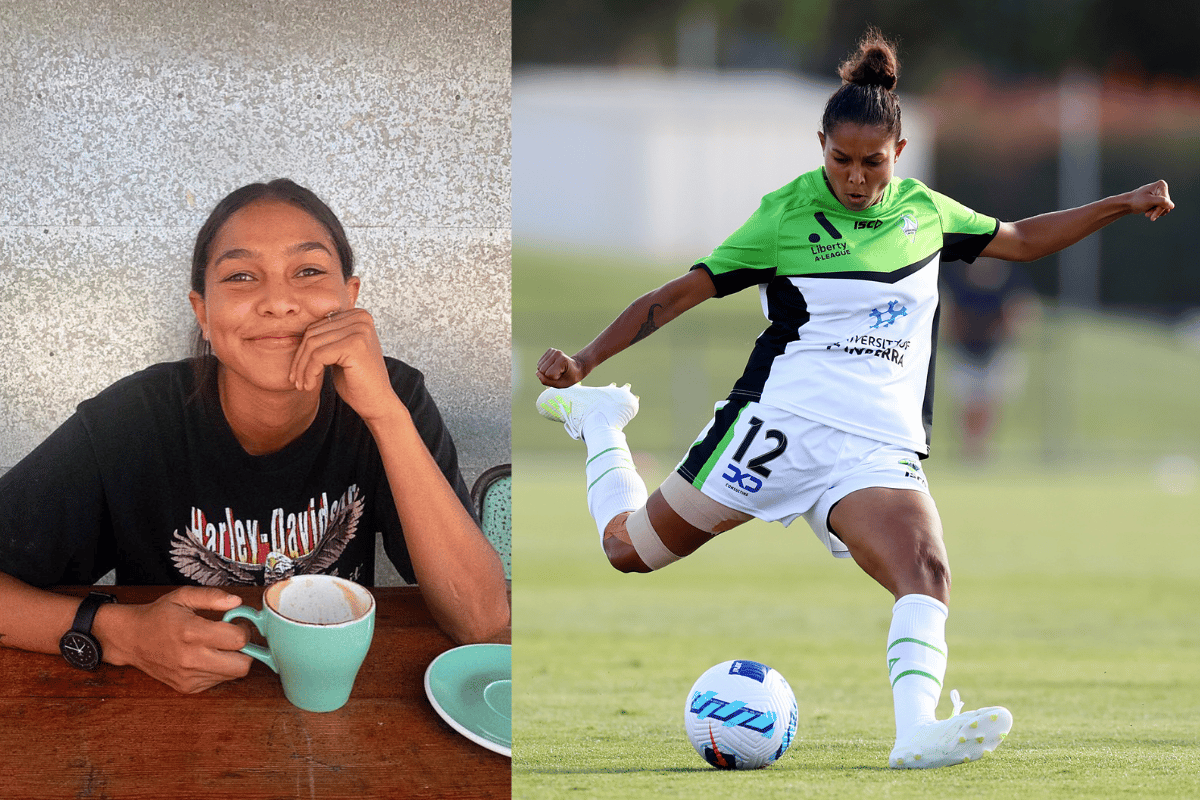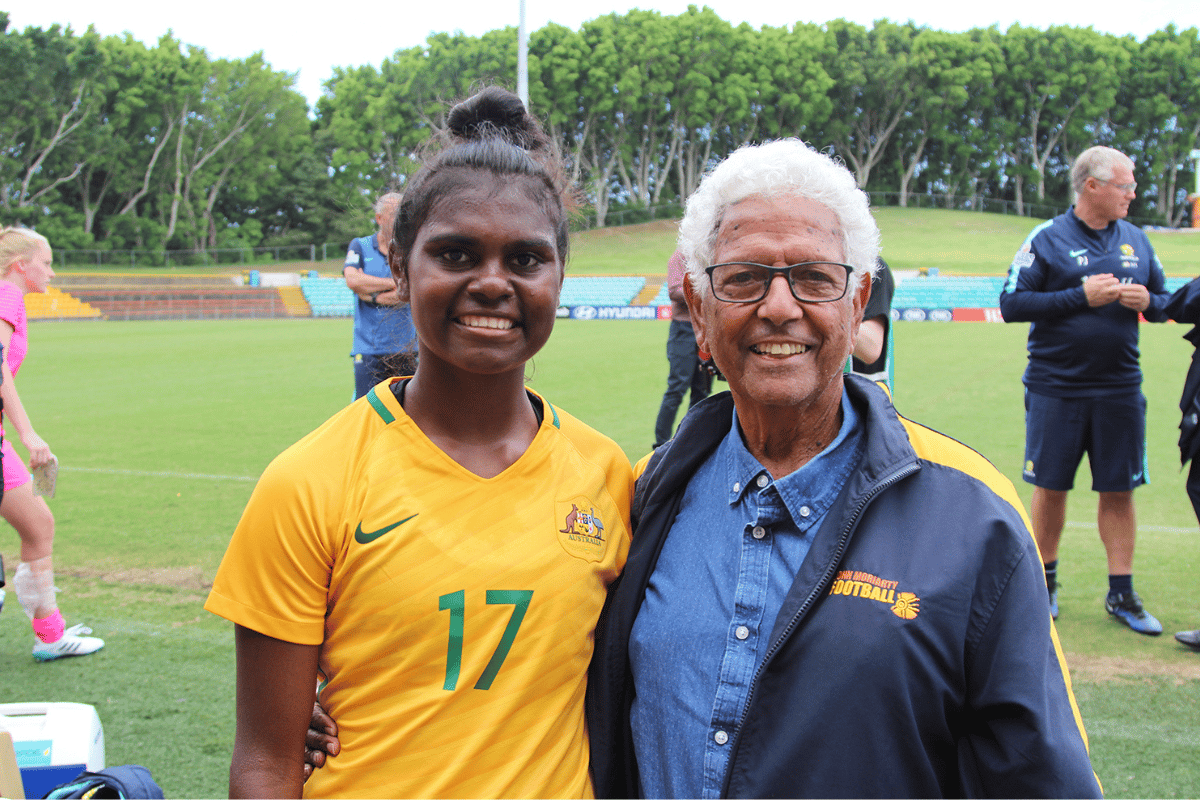
Right now on our TV screens, soccer is at the forefront - and for good reason.
The 2023 FIFA Women's World Cup is underway down under, with Australia just one of 32 nations competing in this year's tournament. Over a million people are expected to attend the games, and already records are being broken in terms of merchandise purchased and ticket sales. And it's about damn time.
It appears the female comps are finally being given the recognition they deserve, and are progressing on the journey to getting the same attention as their male counterparts.
Although this is a fact well worth celebrating, there's another equally important conversation to be had while soccer is at the forefront of public consciousness. And it's about Indigenous visibility in the sport.
Allira Toby is an Aboriginal A-League footballer. Speaking to Mamamia, she says it's great to see the positive response to the Women's World Cup in Australia. She just hopes that in the future we can extend the same attention to uplifting First Nations soccer players too.
"Often there are very few Indigenous players on the field - both in A-League and in local clubs. Indigenous kids and their communities are lacking the chance to play because of money and access. And that's not fair," says Allira.
Watch the trailer for the new docuseries for Matildas: The World At Our Feet. Post continues below.



Top Comments